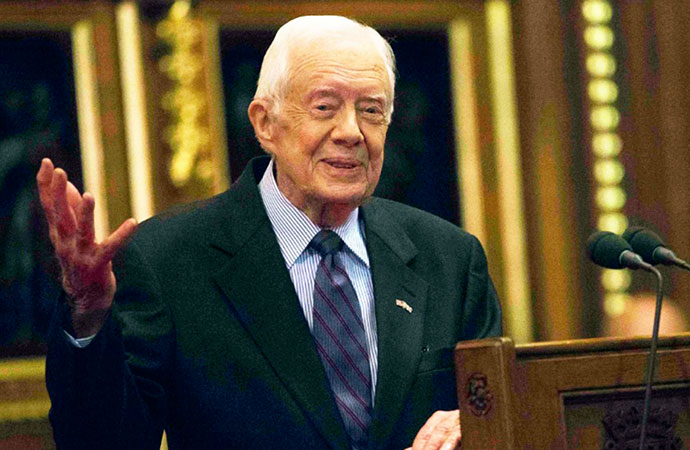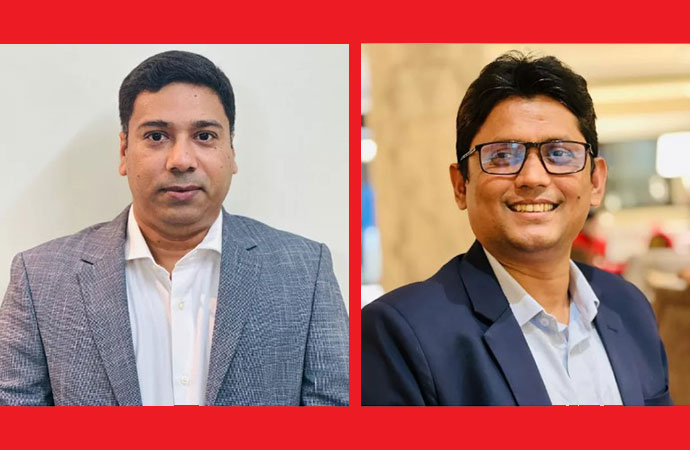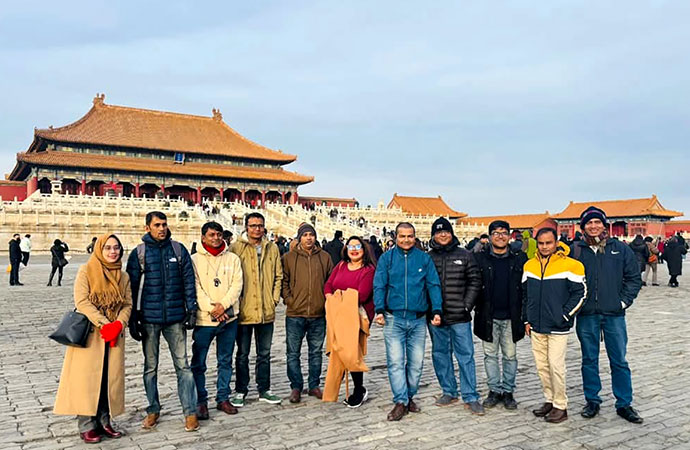Column

Former US President Jimmy Carter. Screengrab: AP/ UNB
Jimmy Carter, the 39th president of the United States (1977-1981), is often regarded as an unsuccessful president in the country of his birth, having lost his reelection bid to Ronald Reagan in 1980. But he proceeded to mount arguably the most significant post-White House career of any US president till now - certainly the busiest. And we can say few US presidents won such global acclaim and came to be held in such high regard, as he did by the end, which came last Sunday (Dec. 29). Another area where he surpassed all other US presidents - he lived to 100, dying just three months past the milestone.
For Bangladeshis, he holds a special place as he was the first US president to host a Bangladeshi counterpart at the White House, when President Ziaur Rahman toured the US in 1980. During a joint press conference following the meeting, President Zia said to him: "We are very grateful indeed, Mr. President, for your special interest for the development, the economic development, in Bangladesh, for which, during your period, we have received full support, and specially in the food sector the support that you have given us, I can assure you that our people are grateful to the American people and to you, Mr. President."
Carter said in his remarks: "[W]ith the courage and determination of the people of his great country, with a population of about 90 million, and with tremendous opportunities for economic improvement, President Ziaur has been in the forefront of making the lives of the Bangladesh citizens better each year."
He added: "As a member of the United Nations Security Council, Bangladesh played a very important and statesmanlike role during the difficult months just past. We are deeply grateful that President Ziaur has come here. We observe with great interest his statement to the United Nations General Assembly, where he called upon the OPEC nations to provide oil to the poor and developing countries of the world at lower prices and also encouraged the OPEC nations with their tremendous influx of capital to invest in the developing nations, like Bangladesh, to provide a better life and employment for the people there."
He later came to Bangladesh twice during arguably the greatest ex-presidency any US president has enjoyed.
His first Bangladesh visit was for the inauguration of a rural health project in 1986. Until 1992, The Carter Center and the Task Force for Child Survival and Development worked in Bangladesh to reduce the incidence of neonatal tetanus, a primary cause of infant death during the first seven days of life in many countries.
Carter's second visit to Bangladesh in 2001, on behalf of the Carter Center and the Washington-based National Democratic Institute (NDI), resulted in "the first serious meeting in years between rivals in upcoming parliamentary elections, during which they made commitments to ensure a democratic and peaceful election," according to the center's own website.
Established in 1982, two years after Carter lost his bid for a second term, the Carter Center became his signature effort to promote fair elections as a vehicle for peace. It has sent observers to monitor some 125 elections in 40 countries and three tribal nations, and has been credited with helping expand democracy across the globe.
Carter's "moral authority, the trust people put in him and the credibility of someone who had both won and lost an election" contributed to these successes, David Carroll, head of the center's democracy program, told The Associated Press.
He was awarded the Nobel Peace Prize in 2002 for the center's work supporting elections, promoting human rights and helping developing countries cultivate economic, social and public health institutions.
He would however remain a one-term president, paying a significant price for his economic record, which included high inflation, double-digit interest rates, and gasoline shortages. The public mood was exacerbated by the Iran hostage crisis, following the November 1979 Iranian takeover of the US embassy in Tehran. An attempt to rescue the American hostages in April 1980 failed, although not due to any fault of Carter's. Despite the record on the economy, he might well have been re-elected had the mission succeeded.
A closer look also reveals Carter accomplished much that will remain notable in the four years he got, from the handover of the Panama Canal to the Camp David Peace Accords between Egypt and Israel, that still survives today.
As Richard Haass puts it: "He focused more on doing good than on doing well. He helped build homes for those in need. He played a major role in eradicating Guinea worm disease in many countries, which as recently as the mid-1980s infected millions of people who drank parasite-contaminated water."
Carter was committed to peace, but he was enough of a realist to adjust to the geopolitical shifts following the Islamic revolution in Iran in early 1979, and the Soviet invasion of Afghanistan later that year. Defense spending increased significantly under him. Sanctions were duly introduced under him. New military deployments were undertaken in Europe. The forerunner of what is today known as Central Command, coordinating US military forces in the Middle East, was established under him.
We know the Carter Doctrine still dictates US policy in the wider Middle East, advocating the use of force in order to defend its interests in the Persian Gulf. Given the entirety of the man's record, which also included espousal of support for human rights as a component of US foreign policy, Haass finds it difficult to see why Carter was not held in higher esteem, referring to US circles. To the wider world, especially for his post-presidency work, he became a symbol of US soft power, and mostly for this reason, history I suspect will not deny him his rightful place.
Enayetullah Khan Editor-in-Chief United News of Bangladesh (UNB) and DhakaCourier

























Leave a Comment
Recent Posts
Pedaling Through the Mangroves ...
The journey from the bustling streets of Barishal to the serene, emera ...
Why the Interim Government mus ...
Two weeks out from what is expected to be a red letter day in the figh ...
Doesn’t matter who thinks what about Bangladesh deci ..
The Other Lenin
US President Donald Trump said his administration
Govt moves to merge BIDA, BEZA, BEPZA, MIDA